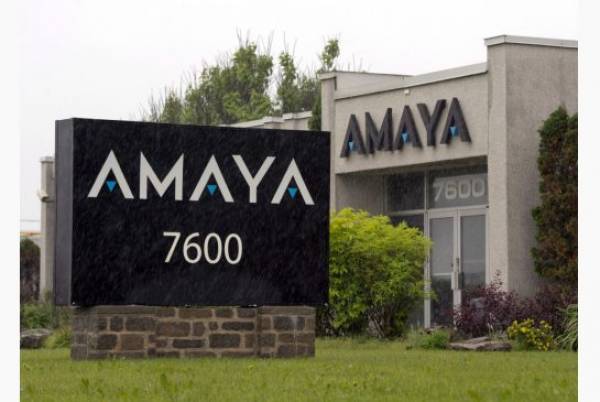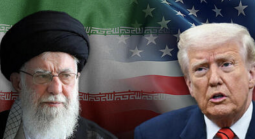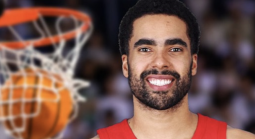Ulterior Motives Speculation in David Baazov Insider Trading Case

A number of online gambling experts are wondering if the Amaya insider-trading case, which names founder David Baazov, might be a referendum on Québec regulators abilities (or inabilities) when it comes to proving such matters.
Could it be that these same Québec regulators have ulterior motives in David Baazov insider-trading case?
In the summer of 2014, Amaya Inc. made the announcement that it would acquire iGaming giant PokerStars in a $4.9 billion transaction. The blockbuster purchase was engineered by Amaya’s ambitious 35-year-old CEO David Baazov, who convinced PokerStars’ original founders to part with the poker site they had built over a decade ago.
While the news caught many in the gaming community off-guard, anomalies in Amaya trading prior to the purchase suggested that, to some, the news might not have been a surprise at all. Five months after the acquisition, the Autorité des Marchés Financiers (AMF), Québec’s financial regulator, took an interest in the deal and raided Amaya’s, Canacord Genuity’s and Manulife Financial’s offices.
Last week the AMF revealed the fruits of its labor, charging Baazov, his brother Josh and 12 other individuals with various offenses related to insider-trading.
The case has been highly publicized, with the AMF describing it as the biggest insider-trading investigation the country has ever seen. To some, it’s refreshing that the AMF might finally bring charges against the Canadian M&A and brokerage firms which have repeatedly avoided prosecution for insider-trading in the past. But digging deeper into the evidence, it becomes clear that the organization’s case surrounding the PokerStars deal is far from a “slam dunk”, and only focuses on a relatively small amount of transactions, doing little to rebuild confidence in Canadian markets and their regulators.
A tangled web of regulators
The case is being prosecuted at a time when the government seeks to combine the country’s disparate financial regulators into a single organization. Currently, each province relies on its own unique set of regulations and bureaucracy, creating an environment of weak securities regulation and leaving provinces ill-prepared to police suspicious price runups in Canadian stocks ahead of important transactions.
The Capital Markets Regulatory Authority (CMRA), the body created to serve as the federal solution to the issue, has already been hampered by the fact that provinces aren’t legally required to participate. The majority of provinces have already signed on, but Québec isn’t one of them. The AMF is staunchly opposed to integrating into the system, claiming that it can better serve corporations and stakeholders with a local touch.
With that in mind, the Amaya/PokerStars case will serve as something of a referendum on the province’s ability to police its markets without outside help. Indeed, industry experts have stated that the case will be closely watched and the integrity of Canadian markets is at stake.
But the AMF has made a big bet on a risky proposition, as insider-trading cases are notoriously hard to prove. The number of such investigations launched has continually fallen in the last six years, with only seven being opened in 2014. Furthermore, regulators are reluctant to pursue criminal charges because the burden of proof is higher than in civil cases. To date, only one person has ever gone to jail for insider-trading in Canada.
The stock run up
In the weeks prior to the PokerStars announcement, Amaya’s trading volume doubled, and whispers of a massive transaction were starting to be heard. Bay Street fund managers and brokers were openly describing it as a “go stock”, likely leading many to get their money in before the official news broke.
The deal was so heavily leveraged that it’s of little surprise that word got out so quickly. In order for Amaya to fund the deal, billions of dollars were needed, and discussions with many big firms ensued. Deutsche Bank, Barclays, Macquarie Capital, Blackstone Group, Canacord Genuity, Cormark Securities and Desjardins all participated in the deal, and certainly more firms had been approached and were aware of the impending buy.
Worth the risk?
To be exact, the AMF has charged David Baazov not with insider trading, but of distributing privileged information. It claims that the Amaya CEO’s discussions with his brother, Josh Baazov, enabled Josh and his associates to glean inside info and use it to their advantage by making profitable trades.
While the AMF has billed the case as Canada’s largest ever insider-trading investigation, the headline-grabbing distinction is a bit misleading. The site’s purchase price was a massive $4.9 billion, but the regulator has only accused the group (minus David) of reaping approximately $800,000 in total profit on the PokerStars transaction.
As the CEO of Amaya, David was poised to personally make hundreds of millions of dollars on the acquisition. It makes little sense that he would risk endangering that by helping a group of 13 people make $800,000, all told.
What’s more, why has only this specific group, who only made a drop in the bucket compared to the massive profits netted from the stock price runup, been targeted? Prior to the acquisition, Amaya’s market cap increased in one month by roughly $445,660,600. Out of nearly half of a billion dollars, they only found inconsistencies with just $800,000? Why were no brokers, bankers or firms implicated?
Casting a wide net
By leveling charges against David Baazov, Canada’s iGaming wunderkind, the AMF has put itself at the center of its own sensationalist story. But they might have overreached by adding his name to the list of the accused. Right now, what’s known of the evidence against him seems flimsy. According to documents made available to the press, investigators will rely heavily on metadata taken from phone calls made by the brothers Baazov and the rest of the group. That means that agents know who was called, how long the calls lasted and what time the calls were made. What they don’t know, however, is what was actually said during those conversations. One can only imagine that David’s attorneys would have a field day poking holes in investigators’ arguments.
Ulterior motives?
It’s reasonable to assume that the AMF is spending considerable resources in order to put together its multiyear investigation. But is it really trying to police its markets, or is this just an excuse for the agency to raise its profile, or even justify its own existence, in the wake of the CMRA? Should we be going around looking for reasons to make targets out of our biggest businesses, just to drum up publicity?
- Alejandro Botticelli, Gambling911.com













